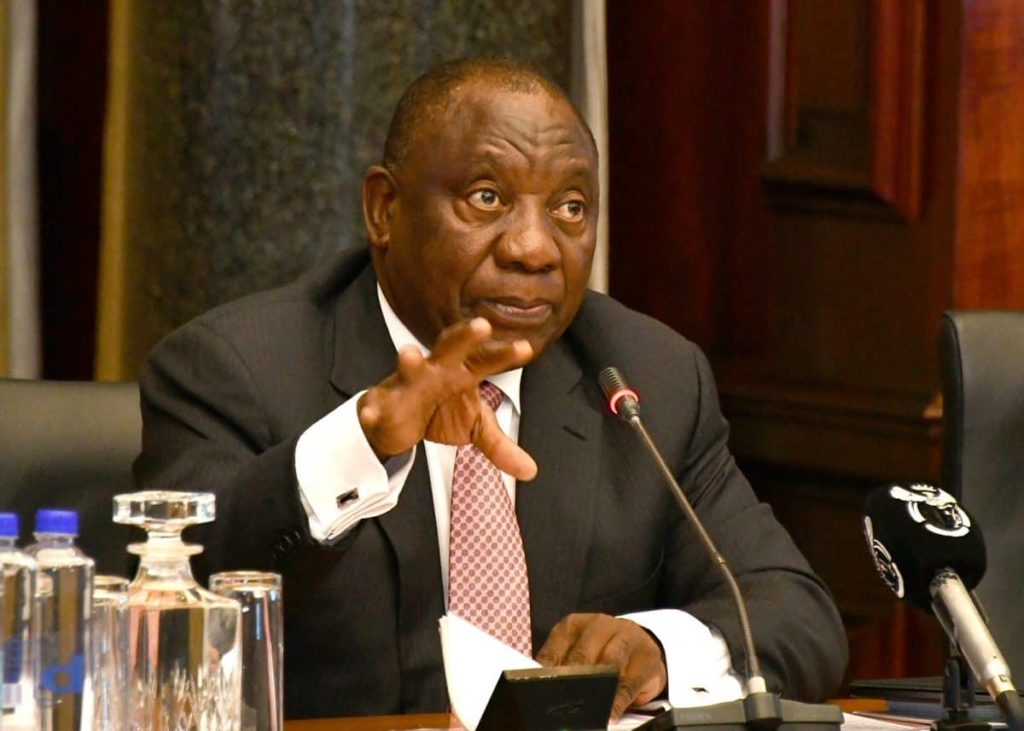President Cyril Ramaphosa — on Monday 23 March — addressed the nation and announced that a nationwide lockdown would be implemented from Thursday 26 March until Thursday 16 April to combat the spread of the coronavirus. During this period, all South Africans are encouraged to stay at home and only leave if they need food, medication or their social grants.
Ramaphosa said the next few days of this implementation to battle coronavirus will be crucial.
“Without decisive action, the number of people infected will rapidly increase from a few hundred to tens of thousands, and within a few weeks to hundreds of thousands.”
Cyril Ramaphosa
“This is extremely dangerous for a population like ours, with a large number of people with suppressed immunity because of HIV and TB, and high levels of poverty and malnutrition.”
Cyril Ramaphosa
The following coronavirus lockdown measures will be implemented
- From midnight on Thursday 26 March until midnight on Thursday 16 April, all South Africans will have to stay at home;
- The categories of people who will be exempted from this lockdown are the following: Health workers in the public and private sectors, emergency personnel, those in security services – such as the police, traffic officers, military medical personnel, soldiers – and other persons necessary for our response to the pandemic;
- It will also include those involved in the production, distribution and supply of food and basic goods, essential banking services, the maintenance of power, water and telecommunications services, laboratory services, and the provision of medical and hygiene products. A full list of essential personnel will be published;
- Individuals will not be allowed to leave their homes except under strictly controlled circumstances, such as to seek medical care, buy food, medicine and other supplies or collect a social grant;
- Temporary shelters that meet the necessary hygiene standards will be identified for homeless people. Sites are also being identified for quarantine and self-isolation for people who cannot self-isolate at home; and
- All shops and businesses will be closed, except for pharmacies, laboratories, banks, essential financial and payment services, including the JSE, supermarkets, petrol stations and health care providers.
Latest coronavirus cases in South Africa on Monday 23 March
Just hours before Ramaphosa’s long-awaited speech, Health Minister Zweli Mkhize announced that the total number of confirmed cases of coronavirus in South Africa had risen to a whopping 402 cases — the biggest spike since the announcement of the country’s first confirmed infection on 5 March.
There were, essentially, 128 new cases confirmed in 24 hours alone — scary stuff.
Ramaphosa a busy president in the wake of COVID-19
On Sunday 15 March, Ramaphosa addressed the nation on the outcomes of the special Cabinet meeting that was held on the coronavirus outbreak.
During his address, which was delivered roughly two hours late, he said schools would be shut down and issued a travel ban to all high-risk countries.
Others like Minister of Higher Education, Science and Technology Blade Nzimande quickly followed suit saying that all universities and colleges would also be closed in the wake of the coronavirus pandemic.
Ramaphosa was supposed to address the nation again, just one week later on Sunday 22 March. However, it was later postponed at the last minute to take place on Monday instead.
Minister in the Presidency Jackson Mthembu announced early on Monday that the president would take to the podium on Monday evening.
“His Excellency President Cyril Ramaphosa will address the nation this evening on the coronavirus pandemic. At that stage, the president would have finalised measures to be undertaken to mitigate the impact of the virus to our people and the economy,” said Mthembu.
The president has been at the Union Buildings in Tshwane deliberating with the National Command Council (NCC) on the government’s response to the global pandemic.
